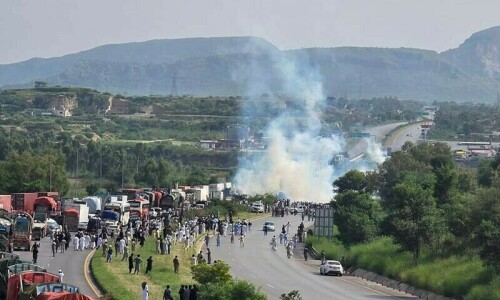India has barred public gatherings in the town of Ayodhya as the Supreme Court started hearing final arguments on Monday to decide whether a Hindu temple should be built on the ruins of a mosque in a long-running dispute.
The razing of the 16th century Babri mosque by Hindu mobs in 1992 led to one of officially secular India’s deadliest bouts of communal riots, in which at least 2,000 people, most of them Muslim, were killed across the country.
Hindu groups believe the site is the birthplace of Lord Ram and have intensified calls for a temple to be built there under Prime Minister Narendra Modi’s Hindu nationalist government.
Modi’s Bharatiya Janata Party (BJP)-led government came to power in 2014 on a promise of building a temple on the site in the northern town and calls demanding it have gathered steam under his rule.
Authorities have imposed an emergency law in Ayodhya under which public assembly of more than four people is banned, saying “hearings of the case are ongoing and a verdict is likely soon”, the district government said in an order.
The ban will be in effect until December 10, the government said.
The dispute in Ayodhya is one of the most polarising issues in a nation where Muslims make up 14 percent of the 1.3 billion population.
Hindu and Muslim groups have failed to resolve the dispute through negotiations over the years, and a court decision in 2010 to divide the 2.77-acre (11,210-square meter) site between one Muslim group and two Hindu groups was opposed by both sides.
The Supreme Court then took control of the site and has been hearing petitions from both sides over what should be built there. The final hearings will finish this week, with a verdict likely over the next few weeks.
At the court in New Delhi, Rajeev Dhavan, a lawyer representing a Muslim group, said the opposition Hindu groups had no evidence to claim ownership of the disputed land.














































